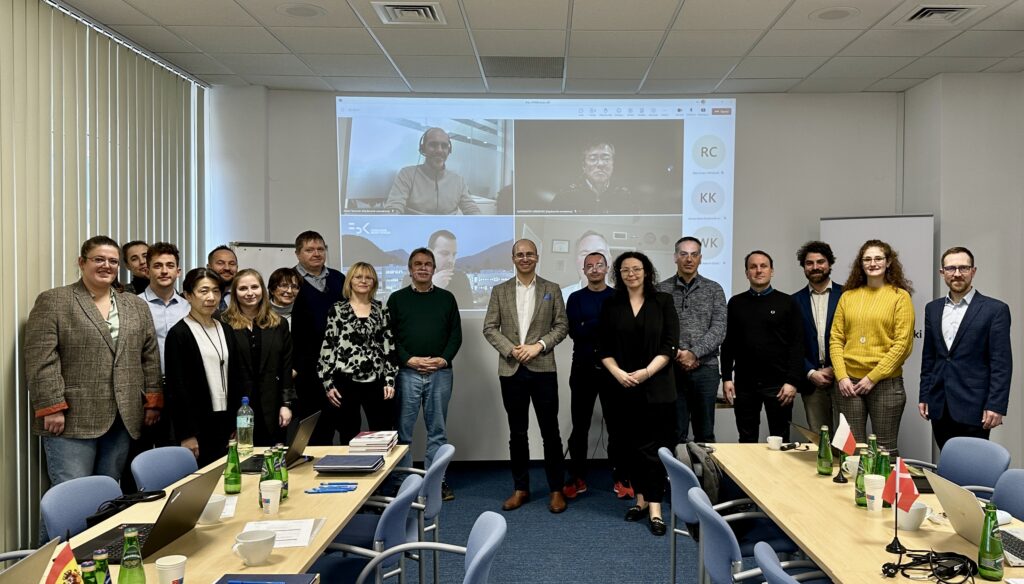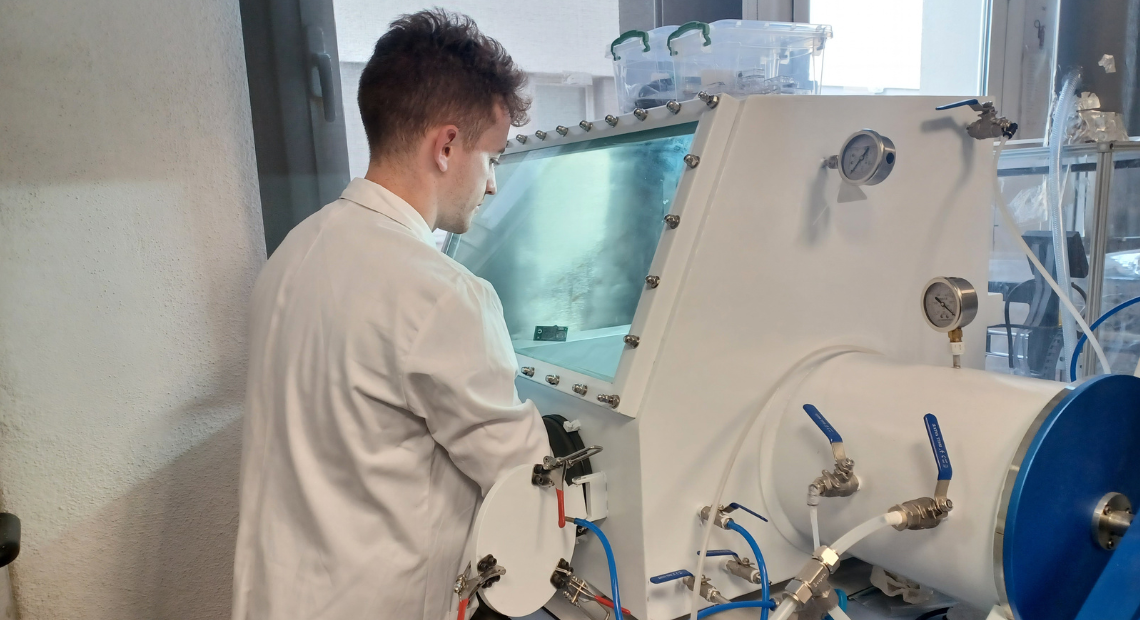According to long-term goals of EU, renewable hydrogen will become an energy vector for decarbonisation of the EU economy. The technology of solid oxide-based electrolysers (SOEL) can become a key development for EU to be a world leader in hydrogen economy.
In this direction, the Hy-SPIRE project aims at further boosting the potential of SOEL by lowering the operating temperature below 700°C, and increasing its flexibility in order to fit with RES generation profiles. Within the project, novel cells will be developed towards achieving strict KPIs such as low degradation, operation at high current densities. The goal will be reached by developing and applying new materials, advanced manufacturing techniques and optimized cell and stack designs.
Hy-SPIRE is a Horizon-JTI-CLEANH2 funded project that stands for “Hydrogen production by innovative solid oxide cell for flexible operation at intermediate temperature“. The Hy-SPIRE project aims at developing oxygen ion- and proton-conducting cells (O-SOE and P-SOE, respectively) on both ceramic and metallic supports, therefore analysing broad range of technological possibilities. A techno-economic analysis, supported by the LCA, will be used for the evaluation of project novelties and the market potential.
The kick-off meeting is held in Warsaw (Poland) on February the 8-9th, 2024. The project has a total budget of 3M€ and will run for 3 years.
The consortium of the project brings together a recognized European stack manufacturer, top players in the development of materials for SOCs, experts in fabrication, as well as unique testing capacities and know-how in technology assessment. It is formed by 7 European partners including the Instytut Energetyki (leader), IREC, Solydera, Deutsches Zentrum Fur Luft – Und Raumfahrt Ev, Fondazione Bruno Kessler, DTU and EPFL.
IREC will be actively involved in the preparation and development of thin functional layers for P-SOE and O-SOE cells, on both ceramic and metal supports. Our laboratories are equipped with large area pulsed laser deposition (PLD) systems and ultra-fast high-temperature sintering (UHS) setup, as well as equipment for SOC cell preparation and tests benches. IREC will also carry out morphological, structural, and chemical composition analysis using its world-class characterization facilities. This action is led by ICREA Professor Albert Tarancón, head of the Nanoionics and Fuel Cells group at IREC and the researchers Kosova Kreka and Toni Maria.

Link to cordis: https://cordis.europa.eu/project/id/101137866
The related press release can be downloaded here:
Funded by the European Union. Views and opinions expressed are however those of the author(s) only and do not necessarily reflect those of the European Union or the Clean Hydrogen Joint Undertaking. Neither the European Union nor the granting authority can be held responsible for them.




